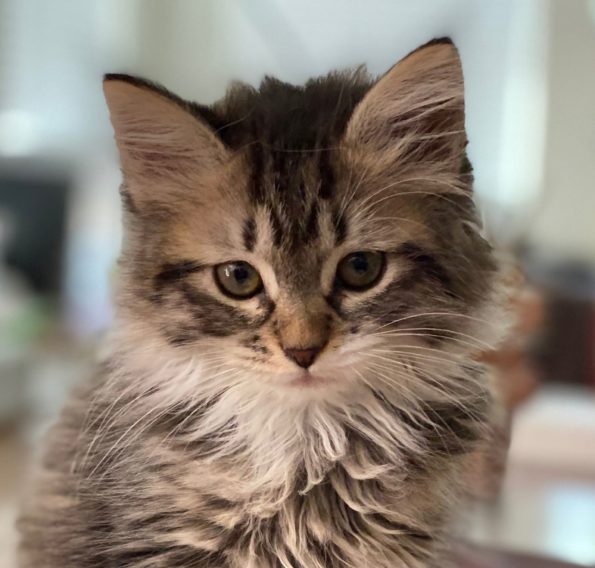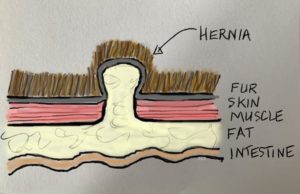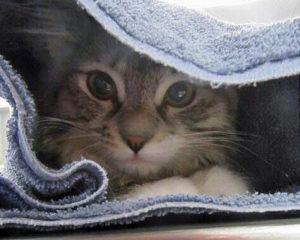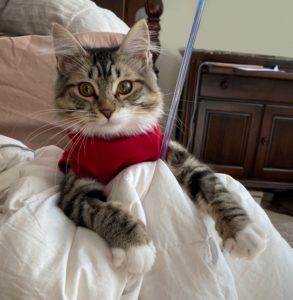
Sadie is one of the sweetest kittens you will find. When we first met her she fit inside a pocket and won everyone’s hearts. We are honoring her as our August Pet of the Month and bringing to light a medical condition that commonly affects puppies, but isn’t quite as common in kittens – an umbilical hernia.
The umbilical cord provides nutrition to the growing fetus and following birth, the umbilical cord normally shrinks down and the umbilicus closes, leaving just a flat, insignificant belly button. Occasionally the umbilicus doesn’t close properly, leaving an opening in the abdominal wall. This allows abdominal contents to pooch to the outside of the body, only contained by skin.
An umbilical hernia is diagnosed on physical exam. Perhaps you’ve had a puppy or kitten who had a small soft bump at their belly button. If the hole in the abdominal wall is small generally there is just a small amount of belly fat that protrudes. However, if the hole is larger, then abdominal contents can move into the opening and lead to serious consequences.
Small hernias don’t always require surgical correction, but larger holes must be repaired. In the most serious cases, loops of intestine or abdominal organs can move into the hernia sac, are vulnerable to bruising or damage, and intestinal contents can potentially become twisted or strangulated. If that were to happen it could be life-threatening.
Surgery involves opening the skin over the hernia and identifying the tissues inside the hernia sac. If the hernia involves the intestines or abdominal organs, they need to be inspected to ensure the tissue is completely healthy, then they are returned to their normal position. If the hernia sac only contains fat tissue, it is usually removed. Then the hole in the muscle layer is closed securely and sutures are placed to complete the closure in the skin.
Fortunately for Sadie, her umbilical hernia was fairly small, included just a bit of abdominal fat and was easily repaired at the time that she was surgically spayed.

 6512 12th Ave NE
6512 12th Ave NE







Wonderful story! Sadie is a little champ.
I have adopted a kitten with an umbilical hernia and I suspect it will be treated at his neuter, which is probably 2-3 months away. In the meantime, can he play as normal? I’m worried about hurting him, not sure what the limits are with one of these hernias.
You need to discuss with your own veterinarian. The size of the hernia dictates what precautions you need to take until the surgical correction can be completed.